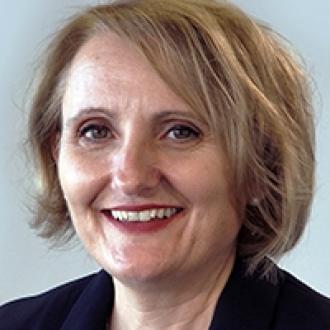- Postgraduate
Nutrition, Health, and Wellbeing MSc
Overview
The MSc Nutrition, Health and Wellbeing has been designed and developed in consultation with industry and academic advisers from across the fields of public nutrition, food, agriculture, sports science, and consumer sciences.
This course will equip you with the knowledge, understanding and practical skills in public nutrition, health and wellbeing, through a number of concisely designed modules and diverse assignments.
You will learn about current public nutrition endeavours, including the pandemic status of Type 2 diabetes and other globally recognisable conditions. This will be achieved through learning about the epidemiology and cultural diets and quality improvement for health and wellbeing.
You will also develop a comprehensive understanding of the food systems, and how those impact the status of public health in both, national and global spectrums while gaining the skills to positively influence the public nutrition environment through tested quality improvement methodologies, eating behaviour and health communication skills.
Apart from the above, the course will provide insights into the topic of sustainability and sustainable diets, providing more employability skills for future industry professionals, especially in the light of arising food and nutrition insecurity threats.

Select your desired study option, then pick a start date to see relevant course information:
Start date:
If your desired start date is not available, try selecting a different study option.
Why study Nutrition, Health, and Wellbeing with us?



What our students say…
Doing a postgraduate course at UWL helped to deepen my understanding of business strategies, grow my network of contacts and develop a different understanding of the industry. The quality of the teaching was really high and the academic staff went out of their way to support me – even helping me to secure a great job with amazing prospects for my future.
The University is very modern, and it has a really good atmosphere.




Course detail & modules
The increase in the development of chronic diseases has become a globally recognisable health issue. This is a complex problem that is based on multiple causes, such as a deleterious environment, poor quality of food, water and air, genetic predispositions as well as an unhealthy lifestyle.
For example, poor nutrition, lack of physical activity, low mental activity, and unhealthy habits such as the consumption of alcohol and smoking can lead to the development of chronic conditions for individuals.
As a result, many national and private healthcare systems struggle to cope with the number of reported cases, often unable to treat conditions/disease(s) that could potentially be prevented and sometimes reversed through the application of healthy lifestyle practices.
These issues also impact businesses, as the average age of the workforce keeps increasing, elevating the chances of the development of such conditions, which often leads to low staff morale and health-driven inefficiencies. Workplaces are a great resource for targeting the adult populations, and therefore those institutions could act as delivery channels of positive changes towards nutrition, health and wellbeing.
On this course, you will be able to develop your knowledge of public nutrition sciences, with a good understanding of the nutritional environment and the industry. Through this course, you will enhance your cognitive and practical skills in public nutrition, health and wellbeing, all of which will equip you with comprehensive employability skills for both, the public and private sectors.
Compulsory modules
-
Sustainable Nutrition
The module is designed for you to evaluate the varied approaches towards sustainable nutrition, by identifying and critically analysing frameworks applied to the dimensions of Sustainable Nutrition. The systems thinking principles of analysis offered in this module will allow you to develop strategies that can optimise the nutrition, health and well-being initiatives and enhance the contribution to the societies you operate in.
-
Personalised Nutrition
From attending this module you will learn about the macronutrients and micronutrients, their sources, functionality and implications for health and wellbeing. This module will investigate different population groups, including all the human life stages and their specific nutritional/health/wellbeing needs.
Apart from nutritional elements, this module will also investigate the role of gut microbiota in healthy living and dysbiosis, genomics, nutrigenomics, and biomarkers. Lastly, the aspects of mental health and the role of nutrients will be assessed.
-
Physical Activity, Nutrition and Health
This module aims to provide you with an understanding of evidence-based nutritional and physical activity recommendations to support health and wellbeing. The module is designed to give you an understanding of the nutrition and physical activity intervention strategies used to promote health.
-
Quality Improvement for Health & Wellbeing
This module will teach you how to identify challenges in public nutrition and how to lead and improve health services for future clients. You will discover how to identify, measure and apply correct health and wellbeing improvement steps for individuals with nutrition-related diseases such as; diabetes, gastrointestinal tracts and brain axis, sight, overweight, obesity, malnutrition and hidden hunger, cancer, cardiovascular diseases and Alzheimer’s.
-
Eating behaviour and Health Communication skills
This module will teach you about the various coaching models and frameworks for nutrition, health and wellbeing improvement. This will be achieved through teaching about patient activation, motivational interviewing, models of behavioural change, health inequalities, ethnic diversity and deprivation. Moreover, the aspects of reflecting clinical practice will also be addressed, mainly through the reflection models by Kolb’s/Gibb’s (reflective cycle).
-
Nutritional Policy and Cultural Diets
In this module, you will be acquired to develop an interdisciplinary approach to research and development, equipping you with the skills to carry out research in the public and private sectors of the nutrition industry.
You will touch upon the following scientific disciplines; food and nutrition policy, anthropology, sociology, political economy, relationships between food and culture, and food production in different areas of the globe, all through a public nutrition-orientated lens.
-
Research Project
In this module, you will develop a comprehensive understanding of the different approaches to research, developing and ‘actioning’ a research proposal, reviewing and analysing the literature. You will also learn about research methods and the different data collection methods, sampling and accuracy, quantitative and qualitative data analysis, evaluating and reporting findings, ethics in research and dissertation writing.
Entry requirements
You should have an honours degree (2:2 or above) from a UK university or equivalent.
Applicants without the above qualifications but possessing relevant work experience are invited to apply.
In exceptional circumstances, candidates seeking entry on to the programme without non-standard academic qualifications will be considered in accordance with the University’s policy for the Recognition of Prior (Experiential) Learning.
Find out more about our processes for recognising previous experience.
Extended Masters Degree
To study the Extended Masters programme you will need:
- a Bachelor's degree
- international students need to meet our English language requirements of IELTS 6.5 or above and a minimum of 5.5 for each of the individual components (Reading, Writing, Speaking and Listening).
Please note: If you qualify for a regular Masters, you will not be accepted on the Extended Masters course.
You need to meet our English language requirement of IELTS 6.5 or above, and a minimum of IELTS 5.5 for each of the 4 individual components (Reading, Writing, Speaking and Listening).
Equivalent qualifications including TOEFL (650) and the Cambridge Advanced Certificate of Proficiency in English (Grade C and above) are also considered acceptable. Visit our English language requirements page for information on other English language tests we accept.
Suitably qualified candidates applying for the award of MSc from overseas institutions may be required to assure the Course Leader of their ability to communicate in the medium of English. This could include an oral interview conducted by means of Facetime/Skype together with a simultaneous e-mail submission of a written document.
Similar procedures will apply to any students recruited overseas as part of an educational fair or separate UWL initiative. All applications are considered on an individual basis and applicants from the UK may be asked to attend or participate in an interview procedure.
An academic and personal reference from an employer is normally required. Both should be independently verified by means of a company/organisation stamp or official seal.
Extended Masters Degree
To study the Extended Masters programme you will need:
- a Bachelor's degree
- international students need to meet our English language requirements of IELTS 6.5 or above and a minimum of 5.5 for each of the individual components (Reading, Writing, Speaking and Listening).
Please note: If you qualify for a regular Masters, you will not be accepted on the Extended Masters course.
Fees & funding
Please note:
- Fees for the 2026/27 academic year and onwards may be subject to Government regulation and change.
- Tuition fees are charged for each year of your course. If your course runs for two years or more, you will need to pay the fee for each academic year at the start of that year.
- If your course runs for less than two years, the cost above is for your full course and you will need to pay the full fee upfront.
- If no fee is shown above then the fees for this course are not available yet. Please check again later for updates.
Funding your studies
If you are studying a Masters course you may be eligible to apply for a Postgraduate Loan, this may help contribute towards your course fees and living costs.
Additional funding is available to some types of students, such as disabled students or those with dependants.
We offer a range of scholarships and bursaries, including awards for specific subjects. Awards for hospitality and tourism students are also on offer.
View full details, including conditions and eligibility.
Please note:
- Fees for the 2026/27 academic year and onwards may be subject to Government regulation and change.
- Tuition fees are charged for each year of your course. If your course runs for two years or more, you will need to pay the fee for each academic year at the start of that year.
- If your course runs for less than two years, the cost above is for your full course and you will need to pay the full fee upfront.
- If no fee is shown above then the fees for this course are not available yet. Please check again later for updates.
International students - funding your studies
We offer scholarships for international students including International Ambassador Scholarships.
Further information about funding and financial support for international students is available from the UK Council for International Student Affairs.
Teaching staff

Dr Amalia Tsiami
I am an Associate Professor of Food Science and am on the editorial board of the Food and Nutrition Journal. I am the academic support for the West London Food Innovation Laboratory, overseeing its business and research outputs. My interests include diet and health in regards to type-two diabetes and cardiovascular disease, and the role of nutrition and hydration in the wellbeing of the older adults.
I am an Associate Professor of Food Science and am on the editorial board of the Food and Nutrition Journal. I am the academic support for the West London Food Innovation Laboratory, overseeing its business and research outputs. My interests include diet and health in regards to type-two diabetes and cardiovascular disease, and the role of nutrition and hydration in the wellbeing of the older adults.
Study & career progression

This course will deliver professional development opportunities to senior managers which can enhance promotion prospects, open up new career opportunities and create greater long-term career security.
For sponsoring organisations it serves as a basis for developing senior staff as thought leaders and also assists in senior staff retention.
On successful completion of the Master’s degree you can progress onto an MPhil or a PhD research degree.
Past students have go on to work in:
- public health
- clinical nutrition
- food industry, including new product development in the health sector
- academia, research and lecturing
- teaching
- sports and exercise nutrition
- health/food journalism
- health and wellbeing coach.
How to apply

You can apply online at any time by following the link below.
Our application form will ask you for some information about:
- what you want to study
- your previous qualifications or experience
- your references
- how we can contact you.
Want to ask us a question first? We would love to hear from you. Contact us free on:
- 0800 036 8888
- courses@uwl.ac.uk
Apply for this course
Next steps after making your application
We aim to make a decision on your application as quickly as we can. If we need any more information about your qualifications, we will be in touch.
In the meantime, come and visit us and find out more about what studying at UWL is like. Sign up for an open day or join a campus tour.
Visit us and see for yourself
Talk to our tutors and find out about our courses and facilities at our next open day or join a campus tour.
We're here to help
Any questions about a course or studying at UWL? We're here to help - call us on 0800 036 8888 (option 2, Monday – Friday 10am-4pm) or email us on courses@uwl.ac.uk.
Our postgraduate prospectus
All of our courses in one place - download now or order a hard copy.

You can apply online at any time by following the link below.
Our application form will ask you for some information about:
- what you want to study
- your previous qualifications or experience
- your references
- how we can contact you.
Want to ask us a question first? We would love to hear from you. Contact us free on:
- 0800 036 8888
- courses@uwl.ac.uk
Apply for this course
Next steps after making your application
We aim to make a decision on your application as quickly as we can. If we need any more information about your qualifications, we will be in touch.
In the meantime, come and visit us and find out more about what studying at UWL is like. Sign up for an open day or join a campus tour.
Visit us and see for yourself
Talk to our tutors and find out about our courses and facilities at our next open day or join a campus tour.
We're here to help
Any questions about a course or studying at UWL? We're here to help - call us on 0800 036 8888 (option 2, Monday – Friday 10am-4pm) or email us on courses@uwl.ac.uk.
Our postgraduate prospectus
All of our courses in one place - download now or order a hard copy.

You can apply online at any time by following the link below.
Our application form will ask you for some information about:
- what you want to study
- your previous qualifications or experience
- your references
- your visa (if required)
- how we can contact you.
Want to ask us a question first? Our dedicated international students’ team would love to hear from you.
- email international@uwl.ac.uk to submit a question
Apply for this course
Next steps after making your application
We aim to make a decision on your application as quickly as we can. If we need any more information about your qualifications, we will be in touch.
In the meantime, come and visit us and find out more about what studying at UWL is like. Sign up for an open day or join a campus tour.
Visit us and see for yourself
Talk to our tutors and find out about our courses and facilities at our next open day or join a campus tour.
We're here to help
Any questions about a course or studying at UWL? We're here to help - call us on 0800 036 8888 (option 2, Monday – Friday 10am-4pm) or email us on courses@uwl.ac.uk.
Our postgraduate prospectus
All of our courses in one place - download now or order a hard copy.
Search for courses
Student life at UWL
Important notes for applicants
Disclaimer
*Modern universities - defined as higher education institutions that were granted university status in, and subsequent to, 1992.
**The National Student Survey 2023 and 2024 - Average of answers to all questions by registered student population. Excludes specialist institutions.
Testimonials - our students or former students provided all of our testimonials - often a student from the course but sometimes another student. For example, the testimonial often comes from another UWL student when the course is new.
Optional modules - where optional modules are offered they will run subject to staff availability and viable student numbers opting to take the module.
Videos - all videos on our course pages were accurate at the time of filming. In some cases a new Course Leader has joined the University since the video was filmed.
Availability of placements - if you choose a course with placement/internship route we would like to advise you that if a placement/internship opportunity does not arise when you are expected to undertake the placement then the University will automatically transfer you to the non-internship route, this is to ensure you are still successful in being awarded a degree.








